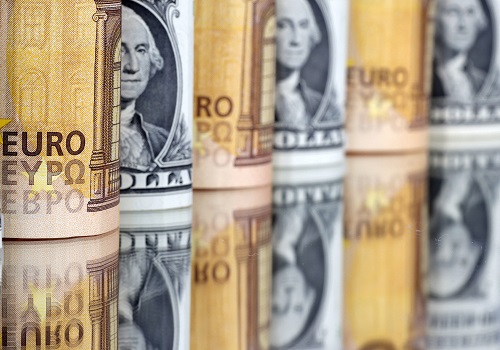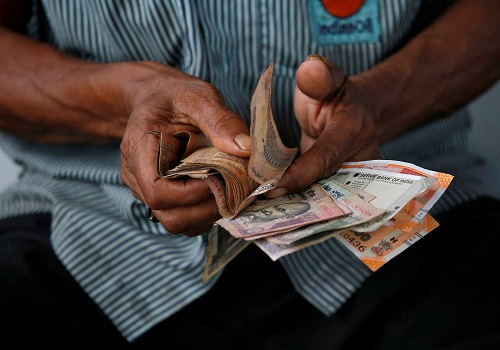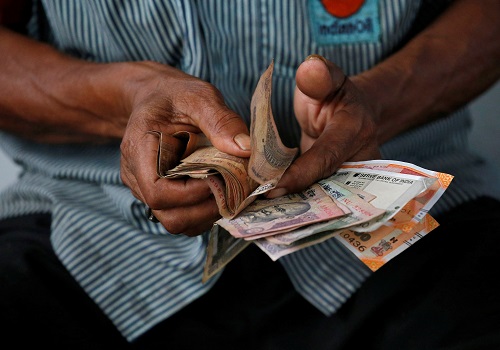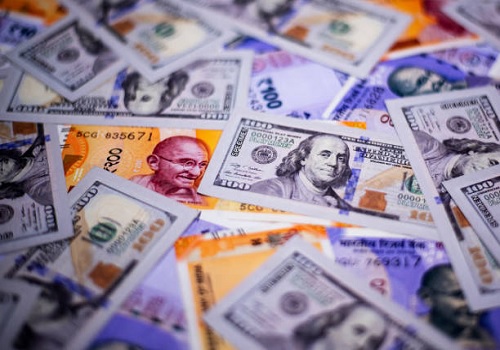Buoyant dollar on course for its longest weekly winning streak since 2014

The dollar was headed for its longest weekly winning streak in nine years on Friday, bolstered by a resilient run of U.S. economic data that has also put the end of the Federal Reserve's rate-hike cycle into question.
In Asia, traders were keenly watching moves in the Chinese currency, after the onshore yuan tumbled to a 16-year low in the previous session.
The U.S. dollar index, which measures the greenback against its major peers, steadied at 105.02 in early trade, not far from the previous session's six-month high of 105.15.
The index was on track to extend its gains into an eighth straight week, and is up 0.7% so far.
The euro, the largest component in the dollar index, was staring at eight straight weeks of losses, with the single currency last marginally higher at $1.0701, after having fallen to a three-month low of $1.0686 on Thursday.
"This week's story was very much about the resilience we've seen in the data ... the market's psychology is that things just look so much better in the U.S. than they do elsewhere in the world," said Ray Attrill, head of FX strategy at National Australia Bank.
Data out this week showed the U.S. services sector unexpectedly gained steam in August and that jobless claims hit their lowest level since February last week, while in the euro zone, industrial production in Germany, Europe's largest economy fell by slightly more than expected in July.
"Comparing the current growth fundamentals of Europe and the U.S., the U.S. still looks superior," said Attrill.
Sterling similarly languished near Thursday's three-month low and last bought $1.2484, set to clock a weekly loss of more than 0.8%.
IN THE DOLDRUMS
The offshore yuan edged 0.05% higher to 7.3379 per dollar, but remained not far from a 10-month low of 7.3490 hit in August. It is on track for a weekly loss of nearly 1% against the dollar, its worst week in about a month.
China's yuan has depreciated steadily since February as the faltering post-pandemic economic recovery and widening yield gap with other economies, particularly the United States, affected capital flows and trade.
The onshore yuan, which touched its weakest level since 2007 on Thursday, has fallen nearly 6% against the dollar so far this year to become one of the worst performing Asian currencies alongside its offshore counterpart.
"I expect USD/CNY to rise to 7.50 by mid-2024 because no major fiscal stimulus appears to be forthcoming, and thus monetary policy will need to continue bearing part of the burden of supporting the economy," said Alvin Tan, head of Asia FX strategy at RBC Capital Markets.
The yuan's rapid decline has prompted authorities to step in to slow the pace of its depreciation.
The Australian dollar, often used as a liquid proxy for the yuan, was last 0.07% higher at $0.6381, but eyed a weekly loss of more than 1%.
The New Zealand dollar similarly was on track to lose roughly 0.9% for the week and last bought $0.5890.
Also on traders' radars was a struggling yen, which rose 0.15% to 147.06 per dollar but remained on the weaker side of the key 145 level which prompted an intervention by Japanese authorities last year.
While officials have stepped up their jawboning efforts to defend the yen, they have also continued to stress the need to maintain the Bank of Japan's ultra-loose monetary policy.






















